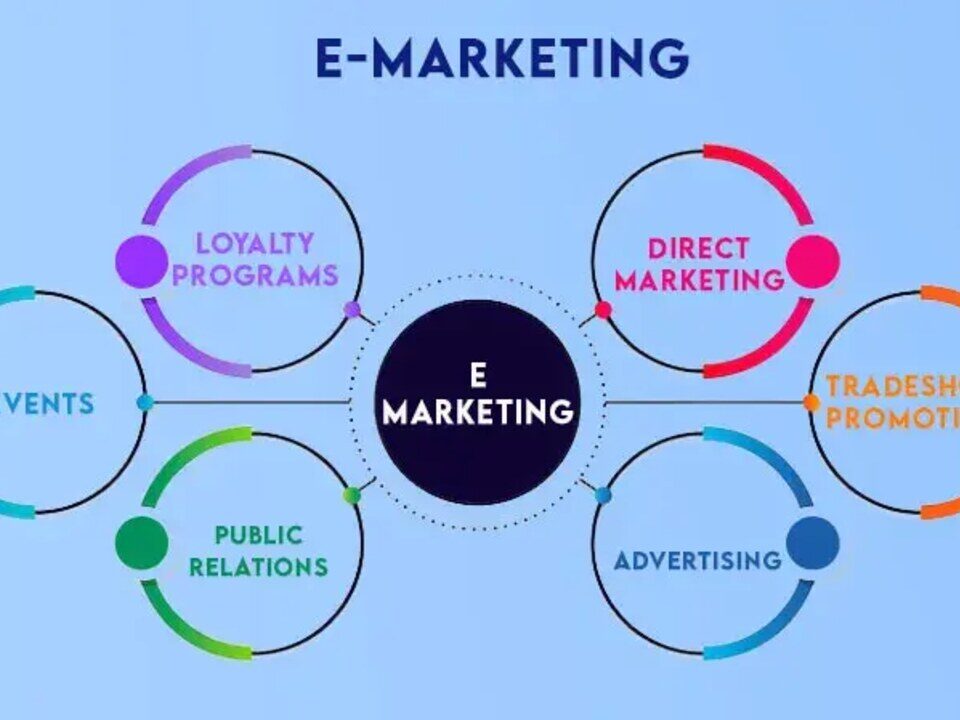Latent Semantic Analysis has been a critical component for organisations in a data-driven business environment, and this is currently an area of advantage whereby LSA would enhance decision-making, content analysis, or even operational productivity within companies. Indeed, in large datasets, LSA reveals relationships between latent terms and concepts and gives insight into whether the context enhances strategic planning and customer engagement. Organisations can apply LSA towards information retrieval optimisation in a time characterised by dominating competing demands from the audience.
Main LSA Benefits:
- Better Decision Making: Analyses complex data to help organisations make prudent decisions.
- Better Information Retrieval: Effectively helps identify data relevant to a query and saves precious time and resources.
- Reduced Costs: Streams the processes while cutting unnecessary expenses.
- Content Analysis: Helps in generating actionable insights from large databases for businesses.
- Continual Improvement: The process of continuance optimisation in operations and strategy.
What is LSA Full Form?
LSA is the abbreviation for Latent Semantic Analysis. In other words, it’s a natural language processing and text mining technique that attempts to discover the latent semantic relationship between the words in a set of documents so that meaningful insights can be drawn from unstructured text on behalf of an organization. It elaborates upon terms’ context as well as their co-occurrence, thus enhancing the business’s information retrieval, content organization, and customer feedback analysis.
Key Components of LSA
- Document-Term Matrix: This is the core form upon which LSA analysis is based. It captures term frequency across documents.
- Singular Value Decomposition (SVD): Dimensions within the document-term matrix are reduced by SVD, representing important relationships.
- Semantics: Relationships between words extend beyond direct matches and reveal more intrinsic meanings.
- Dimensionality Reduction: The technique reduces large datasets to highlight the most significant semantic patterns.
- Contextual Understanding: It explains terms concerning other contexts to improve the text’s understanding accuracy.
All these factors are important to ensure that businesses realize their latent Semantic Analysis potential and remain competitive in a market where insight into data is highly valued.
Some of the Key Issues in LSA
LSA helps other organisations, mainly those whose strategy is based on decision-making, resource allocation, and customer engagement. It helps businesses establish what lies at the core of the data and thus develops aligned strategies that support their goals and the market’s needs.
Superior Decision Making
- Data-driven insights: LSA allows the organisation to identify the dormant relationships between the terms, which enhances the decision-making process.
- Customer feedback analysis: With the use of LSA, a business can evaluate its strategies by tracing the customers’ sentiments, thus ensuring the provision of needs to the customers.
- Improved Forecasting: LSA helps to predict trends by analysing textual data.
- Strategic Planning: What LSA learns enables organisations to make strategic long-term planning and everyday operational decisions.
- Advenience over Competitions: Organisations use LSA to avoid the trend others cannot predict.
Now that the full form of LSA has been explained; businesses can focus on the ways in which it can be deployed to better advantage in making more effective, all-in-all decision-making processes.
Increased Efficiency in Cost through LSA
In the business world where cost-cutting remains the issue, LSA is very crucial because it helps minimize processes in an operation while ensuring proper resource allocation. It will help an organization avoid duplicated work to improve its efficiency in operations since overlaps are identified.
Cost-Saving Opportunities with LSA
- Streamlined Information Retrieval: LSA saves resources for the time taken to seek relevant data.
- Eliminated Redundancies: LSA eliminates unnecessary work since there are overlaps identified.
- Resource Allocation: It ensures that resources are always focused on the most valuable activities.
- Process Optimization: It identifies areas for improvement in the current workflows.
- Improved ROI: Helps increase return on investments by devising better strategies, a consequence of learning from LSA.
Incorporating Latent Semantic Analysis, companies can achieve cost efficiency, which goes on to help improve profitability and make business operations more sustainable.
How LSA Promotes Customer-Oriented Focus
Another significant implication of LSA is that it might help organizations focus on the requirements of customers through sentiment analysis and feedback analysis. Companies would gain a better understanding of what the customers want and make their efforts more focused, as per the preferences of the customers.
Using LSA for Better Customer Engagement:
- Sentiment Analysis: Analysis of customer reviews and feedback regarding trends and preferences.
- Targeted Marketing: It helps a business plan marketing campaigns dissonance.
- Personalisation: With LSA, you can personalise product recommendations based on a customer is actions.
- Customer Satisfaction: It highlights points for better service towards the customer and provides a thorough improvement in overall satisfaction.
- Feedback Integration: This allows an organisation to update strategies continuously based on customer insight with LSA.
By carrying out content analysis, business houses can improve their strategies of customer engagement by keeping it in pace with consumer expectations.
LSA and Continuous Improvement
Businesses that are keen on staying competitive will require improvement to be continuous. LSA is easier to continuously optimize since it is data-driven and shall be used in informing strategy and identifying improvement areas. This ensures operations are reviewed in time to ensure business flexibility and agility.
Ways Towards Continuous Improvement:
- Continuous Review of Feedback Analysis: LSA will continuously review customer feedback concerning improvement points.
- Performance Monitoring: Identify and track performance measures to monitor LSA’sLSA’s impact on efficiency.
- Regular Review of Statistics: It monitors the consistency of strategies and helps maintain them according to changing circumstances.
- Flexibility: Flexibility within LSA helps a business revise its process based on changing situations in the market.
- Innovations: This kind of analysis leads to an innovative environment where organizations are prompted to explore new ideas within their grasp through deep insights drawn from the data.
A set of businesses developing a culture for change will be able to thrive well only when they share their corporate strategy with the help of Latent Semantic Analysis.
Strategic Management Through LSA
Good strategic planning is necessary for the survival of businesses in this fast-paced world. LSA aids in making such strategic planning for companies as it predicts trends, makes sense of consumer behavior, and creates long-term plans based on collected data insights.
LSA offers Key Contributions to Strategic Planning
- Trend Forecasting: LSA makes sense of newly emerging trends and market opportunities.
- Long-Term Decision-Making: It generates insights that provide information regarding product development and market expansion.
- Resource Optimization: Aids in optimising the use of resources to support strategic initiatives.
- Competitive Positioning: It ensures that the company is already ahead of its competitors due to timely insights into industry changes.
- Risk Management: LSA helps organisations anticipate potential risks by analysing data patterns.
Therefore, businesses can ensure informed, data-driven decisions that lead to sustainable growth and stick to strategic planning by using LSA’s full form.
Real-World Applications of LSA
LSA has been successfully applied to multiple industries to improve decision-making, content management, and customer satisfaction. Below are three case studies demonstrating the practical benefits of LSA.
1. E-commerce Platform
The E-commerce giant applied the idea of LSA to further analyze customer reviews and feedback. The analysis was useful for optimizing the inventory and marketing strategies designed based on the key themes and sentiments of customers. Out of this, the company achieved a 20% increase in sales in just one year.
- Customer Feedback Analysis: Explained customers’ preferences.
- Inventory Optimization: The company’s product offerings are aligned with customers’ demands.
- Increased Sales: Better decision-making translated into more targeted efforts.
- Enhanced Return on Investment: Efficient resource usage led to better financial results.
- Customer Satisfaction Increased: LSA supported them in shopping better.
2. Academic Research Institute
A college used LSA in helping them improve their digital library system. The documents were grouped based on relevance, therefore making related works easily accessible to researchers, leading to higher multi-disciplinary research collaboration.
- Enriched Information Retrieval: LSA provided scholarship with the opportunity to locate the most relevant information.
- Interdisciplinary Team Work: Introduced new interdepartmental interactions.
- Clustering of Content: The scholarly articles are clustered meaningfully.
- Lesser Time-Consuming: The hours it takes to search for research material are reduced.
- More Output of Research: More efficient research processes are provided through LSA.
3. Financial Services Company
A provider of financial services streamlined its process of client communication by using the application of LSA. In order to be better at its service provision, it assessed the questions and comments from clients with a view to improving its services. This process culminated in increasing satisfaction and retention rates of its clients.
- Improving responses to client queries: The company improved its ability to respond to client queries with the help of LSA.
- Improve service: The company would adjust its service options based on client feedback.
- Customer Retention: Client loyalty increased due to increased satisfaction rates.
- Operational Efficiency: The company streamlined processes, thus leading to shorter response times.
- Profit Growth: Better service helped with better retention and bottom lines.
The above case studies illustrate some tangible payoffs that Latent Semantic Analysis may bring to most sectors.
Final Thoughts
Latent Semantic Analysis, which would potentially be among the tools organizations might apply to improve data analysis, content management, and the decision-making process, enables businesses to make a step toward more efficient and cost-effective information retrieval by revealing a hidden relationship between terms and documents through meaning structures.
Key Takeaways:
- Information Decision Making: LSA yields data-driven insights that promote strategic decisions.
- Cost Efficiency: It streamlines and reduces redundant efforts.
- Increased Customer Centricity: Surveys of customer feedback make LSA ensure that the business remains up-to-date with the evolving needs of customers.
- Continuous Improvement: With LSA, businesses continue to optimise through time from time assessment and innovation.
- Strategic Advantage: With the inclusion of LSA within its planning, the business would not be lagging behind in this market and remain abreast with competitors.
Now is the time when businesses need to invest in LSA full form for operational success as well as overcome hurdles created by the persistently changing market.





